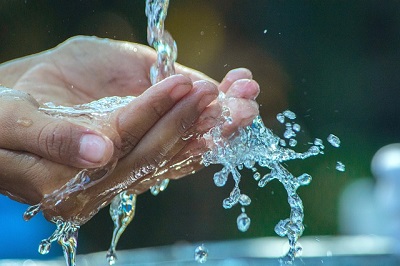Afraid to Drink Water? "Dehydration" is The Enemy of Chronic Prostatitis!
Prostate disease can be the first "killer" of men's health. Once patients are infected with prostatitis due to bad living habits and declining body resistance, they will suffer much pain.

Many males are plagued by prostatitis; no matter what they do, they will consider the advantages and disadvantages of their condition. Many men with chronic prostatitis have recurring symptoms of frequent urination and urinary pain. These urination problems bring fear to them, so they do not dare to drink more water, thinking that more drinking will aggravate urethral irritation symptoms.
However, the truth is the opposite: "lack of water" is the enemy of chronic prostatitis.
1. Why are patients afraid to drink water after having chronic prostatitis?
Chronic prostatitis is a long-term inflammation of the prostate. The prostate is next to the bladder and guards the upper urethra. When it becomes inflamed and infected, urination is first affected, and patients may repeatedly experience symptoms such as frequent urination, painful urination, and especially urinary urgency.
Drinking more water will increase the volume of urine and the frequency of urination, so patients are concerned that it will increase urinary frequency and urgency episodes, leading to increased prostate congestion and inflammation, which deters them from consuming enough water.
In addition, drinking water before going to bed will increase the amount of urine, and some patients will also affect the quality of sleep by increasing the number of night awakenings, aggravating the condition.
Based on the above factors, many people with chronic prostatitis do not dare to drink too much water.
2. The effects of "lack of water" on chronic prostatitis
Not daring to drink water is unfavorable to the recovery of chronic prostatitis, and drinking too little water will have the following negative impacts on the disease:
Urine concentration: insufficient water will lead to urine concentration. The concentration of harmful substances in the urine increases, stimulating the urethra and prostate and aggravating the inflammation.
Urinary tract infections: the lack of water decreases the volume of urine so that the bacteria in the urethra cannot be sufficiently flushed, making it easy to lead to urinary tract infections and further aggravate the symptoms of prostatitis.
Formation of stones: the lack of water causes a concentration of urine, which may lead to the formation of stones in the urinary tract and thus irritate the urethra and prostate, aggravating inflammation and pain.
Abnormal prostate secretion: insufficient water may also affect the dilution and discharge of prostate secretions, leading to retention of secretions in the prostate, increasing inflammation and discomfort.
3. How should chronic prostatitis patients drink water?
Patients with chronic prostatitis should actively take the traditional Chinese medicine Diuretic and Anti-inflammatory Pill that can induce diuresis for treating stranguria, activate blood circulation, relieve pain, clear heat and remove toxins to improve the symptoms of abnormal urination, pain, and discomfort. This way, patients can reduce their fear of urination.
Meanwhile, patients need to pay attention to their methods of drinking water to promote recovery and relieve symptoms:
Drinking water in moderation: It is essential to maintain adequate water intake. Drinking enough water helps dilute urine, reduce the concentration of harmful substances in the urine, and reduce the irritation of the urethra and prostate. It is recommended that the amount of water consumed be maintained at about 2–2.5 liters per day.
Drinking method: Patients should drink water slowly and evenly, and they should not drink too much at once, nor they wait until they are thirsty. Divide the day's water intake into several parts, and drink moderate water each time. Drinking much water too quickly may lead to overstretching and irritation of the bladder and aggravate the symptoms of frequent and urgent urination.
Drink warm water. Both cold and hot water may irritate the prostate. It is recommended to choose warm water with a moderate temperature that will not irritate the urethra and prostate. Cold drinks and spicy foods should also be banned to avoid irritating the prostate and urethra.
In conclusion, patients with chronic prostatitis must drink moderate water. They should not be afraid to drink because insufficient water in the body is not conducive to recovering the condition.
Recommended Readings:
Summer Care: Effective Strategies of Traditional Chinese Medicine for Treating Chronic Prostatitis
Can Dietary Changes Make a Difference in Managing Chronic Prostatitis?
Managing Chronic Prostatitis: Do You Need to Abstain from Alcohol?



